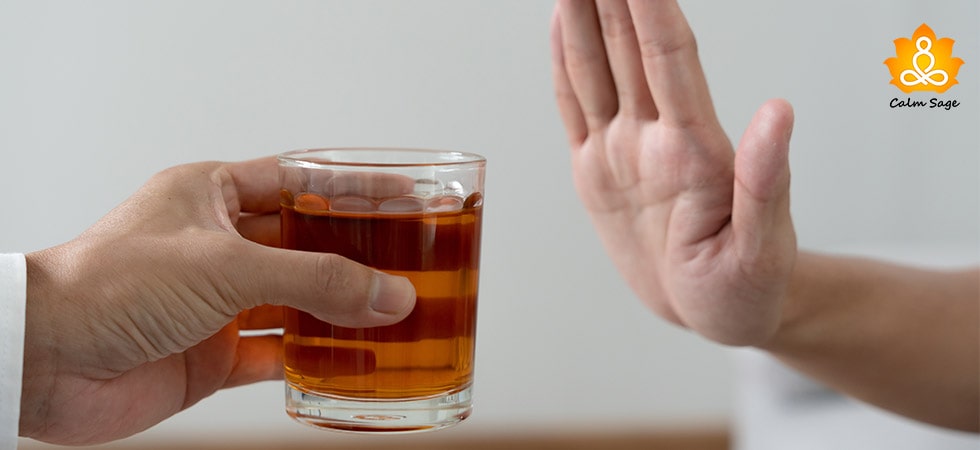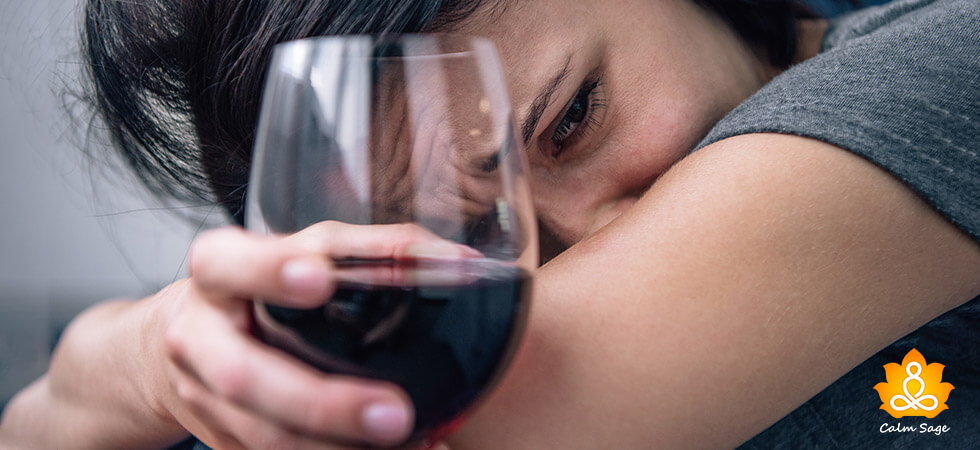Binge Drinking: How Does Drinking Too Much Affect Your Overall Well Being?

I am sure you’ve heard of binge eating… binge drinking is the same as binge eating but has dangerous consequences on overall well-being. Binge drinking is recognized when an individual consumes alcohol excessively (approximately a 2-hour period).
During this drinking period, the alcohol concentration in blood (BAC) gets up to 0.08% which means five drinks for males and four drinks for females. The fact is, binge drinking is controllable or manageable.
There are various options available for people which can help them control drinking or stop drinking. This blog covers everything you need to know about binge drinking along with prevention steps.
Let’s get started!
What is Binge Drinking?
When someone drinks excessively and regularly, almost every day and every two hours, it is considered binge drinking. Psychologically, a large quantity of alcohol is consumed in short periods. During binge drinking, BAC reaches up to 0.08% which makes them legally intoxicated.
Scientifically, our body absorbs alcohol at different ranges which depends on different factors like sex, body size, age, and more. According to research, binge drinking for men is considered to be 5 standard drinks and 4 standard drinks for women.
Additionally, BAC also depends on the type of alcohol consumed, for example, 5 oz of wine contains 12% of alcohol content and 12oz of beer contains 5% of alcohol content. While age is one of the important factors, it has been observed that binge drinking is more common in young adults aged between 18-34.
Difference Between Alcoholism and Binge Drinking
While some people relate or get confused with two different terms with different meanings, alcoholism, and binge drinking, here are the differences to understand
| Alcoholism | Binge Drinking |
|---|---|
|
|
|
|
|
|
|
|
Prevalence of Binge Drinking
According to studies, 1 in 6 adults in the USA is into binge drinking with around 25% during weekends. Around 90% of adults in the USA drink excessively, while binge drinking is just one form of excessive drinking.
Additionally, binge drinking is more common in young adults aged between 18-34 which is more common in males than females. According to research, binge drinking is commonly seen in young adults with high incomes ($75,000 or more) or who live in the Midwest of the US. However, I found one study that shows the low-income and low-level education population is also binge drinking.
Signs of Binge Drinking
Signs of binge drinking can be identified through patterns and amount of blood alcohol concentration (BAC). Below are some identification factors behind binge drinking:
- According to the National Institute of Alcohol Abuse, when an individual drinks above the range of BAC, it is considered binge drinking.
- Talking about patterns, the BAC up to 0.8% is achieved when some binge drink continues within a two-hour period. BAC factors also depend on age, sex, body size, type of alcohol consumed, and other factors.
Apart from the above-mentioned factors, here are some signs that can be used to identify binge drinking:
- Consumes alcohol excessively during weekends or social events
- Blackout
- Consumes 4-5 standard drinks within 2 hours of the timespan
- Drinking excessively above BAC
- Constant hungover
- Feeling guilty or constantly worrying about excessive drinking
Types of Binge Drinking
Below are some of the common types of binge drinking based on factors like excessive alcohol use, environmental, social, and psychological factors.
1. Alcohol Deprivation Effect
The alcohol deprivation effect is recognized by excessive drinking which produces endorphin/opiate signals excessively and the brain starts adapting the receptions by downregulating them. This phenomenon often results in euphoria, pleasure, and buzz every time drinking is resumed.
2. Boredom-Related Binge Drinking
When an individual starts drinking due to boredom or to just pass time, it comes under boredom-related binge drinking.
3. Mood-Related Binge Drinking
When an individual consumes a large amount of alcohol to relieve stress or feelings of sadness, they crave comfort by binge drinking. Such people use mood-related binge drinking as a coping mechanism to manage stress or anxiety.
4. Social Binge Drinking
When people start drinking to fit in a social group like co-workers or friends, they may engage in binge drinking.
5. Stress-Related Binge Drinking
When people start consuming alcohol to calm down and regain their senses, they might do it to relieve stress but when it becomes a habit, they might start consuming alcohol excessively.
Health Risks and Dangers of Binge Drinking
According to psychology, there are serious health impacts of binge drinking which can be long-term and short-term.
Short-Term Effects of Binge Drinking
Scientifically, the liver starts breaking down every time we consume alcohol, when an individual binge drinks, their liver is not able to keep the amount of alcohol which results in high BAC.
As the blood circulates throughout the body, all organs, tissues, and parts are affected by the high alcohol content. This results in:
- Dizziness or clumsiness
- Drowsy
- Feeling euphoric
- Impaired judgment
Below are some of the short-term effects and risks of binge drinking:
- Acute pancreatitis
- Alcohol poisoning
- Impaired immune functioning
- Physical traumas
- Assault or violence
Long-Term Effects of Binge Drinking
- Chronic conditions like heart disease, diabetes, liver disease, sleep disorders, and more
- Cognitive issues
- High risk of developing cancer in different parts of the body like mouth, liver, colorectal, esophageal, and more
- Sudden infant death syndrome
- Fetal alcohol syndrome
How to Stop & Prevent Binge Drinking?
Constant binge drinking can be very risky and dangerous for overall well-being, it can also develop alcohol use disorder if not managed on time. Here are some strategies that you can use to stop binge drinking:
1. Avoid triggers:
Based on the types of binge drinking, if you’re triggered by social events, start avoiding them. Additionally, if you binge drink to relieve stress, you can try other healthy coping mechanisms to relieve stress or anxiety within.
2. Watch out for symptoms:
Whenever you get triggers, watch out for your symptoms so that you can ask for help. Additionally, watch out for the drinks you take, always consume the amount of alcohol recommended according to your body size, age, and sex.
3. Understand the cause:
Ask yourself, “Why am I drinking so much, what’s the reason, am I depressed, do I need help, or am I drinking to relieve stress? Try to find out the cause so that you can stop drinking effectively.
4. Consider seeking support:
If you’re not able to stop drinking or if you think you’re dealing with other mental health issues, consider connecting with a mental health professional to learn about your behaviors, reasons, and healthy coping mechanisms.

Great for a large network of licensed therapists
-
$60 to $90/week, billed every 4 weeks
-
Therapy via messaging, phone, or live video chat
-
Flexible cancellation at any time
20% off your first month

Great for CBT Based therapists
-
$40/week, billed every 4 weeks
-
Therapy via messaging, phone, or live video chat
-
Specialization for CBT based Therapy
20% off your first month

Best for Treatment Plants
-
$60 to $90/week, billed every 4 weeks
-
Therapy via messaging, phone, or live video chat
-
Flexible cancellation at any time
$100 off your first month with code SPACE
When to connect with a mental health professional?
- Not able to control triggers
- Having difficulty reducing the alcohol intake
- Craving for alcohol
- Increased alcohol tolerance
- Mental health issues related to alcohol
- Constant memory loss or blackouts after consuming alcohol
Prevention Tips for Binge Drinking
One of the most effective ways to prevent binge drinking is to learn the facts and raise awareness so that we all can contribute to the cause. If you want to raise awareness, share this blog with your friends and colleagues.
To avoid your triggers, you can try healthy coping mechanisms, meditation, and yoga to feel comfort, de-stress your body, and fight the challenges.
Here is the list of blogs that might help you overcome and prevent binge drinking:
Key Takeaway: Getting the Right Help
If you’re a high-density drinker or binge drinker, you can seek the right help by contacting to:
- Rethinking Drinking
- NIAAA Alcohol Treatment Navigator
- US Preventive Services Task Force
- Substance Abuse and Mental Health Services Administration National Helpline
I hope this blog helps you understand everything you need to know about binge drinking. For more such content, connect with us on all social media platforms.
Thanks for reading!




















